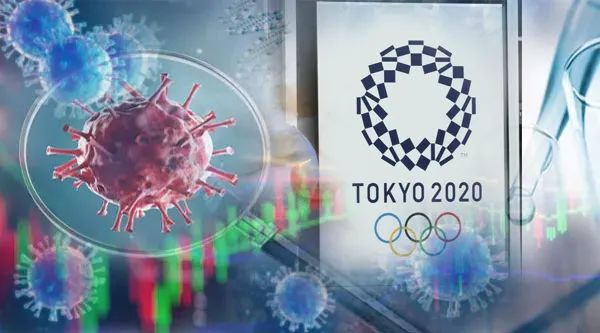Thousands of athletes and Olympic officials have arrived in Japan's capital for the 2020 Olympic Games. If you'll recall, they had been postponed by a year because of the global coronavirus pandemic. And there has been a lot of controversy over holding them now, with only a fraction of the Japanese population fully vaccinated. So now just days before the games are scheduled to begin in Tokyo, three people inside the Olympic Village have tested positive for COVID-19. That village is where the athletes will live during the competition. NPR's Leila Fadel is in Tokyo and joins us now to discuss these upcoming games. Hi, Leila.
LEILA FADEL, BYLINE: Hi.
GARCIA-NAVARRO: What do we know about these positive cases?
FADEL: So the spokeperson for the Tokyo Organizing Committee said the positive cases are all from the same country, two athletes involved in a team sport and an official connected to that team. So now the entire group has been isolated, meals being delivered to their rooms. People who were in close contact were also isolated. And it raises concerns, concerns that many have been voicing for months about these games going forward in a global pandemic, in a country where less than a quarter of the population has been fully vaccinated. But they're going forward. And the opening ceremony here in Tokyo is on Friday. And the worry is that there will be more positive cases in the coming days.

GARCIA-NAVARRO: I mean, you just arrived in Tokyo, and you're under quarantine, right? I mean, how strict are these COVID measures?
FADEL: I mean, they're really strict. Japanese officials and officials with the Olympic Organizing Committee are really trying to limit interactions between people who live here and athletes and others who are coming in for the Olympics. So far, more than 18,000 people have come in for the games. And prior to getting here, they all did what we did, two COVID tests. They had to fill out a health form after health form. And when we arrived at the airport, we were separated from Japanese citizens or residents of Japan arriving into the country and were put through a different line. And we headed through a maze of different pit stops where we were asked to present test results or QR codes that showed we completed various health forms. We took a saliva test for COVID-19 and then two more stops, one of which was finally immigration.
And then each of us individually was taken to our quarantine hotel, where we're quarantined in our tiny rooms for three days. And each day, we take a COVID test to make sure we're negative. And then we'll be able to go out there and report. At the airport, it took us about three hours, and we spoke to others that were there from six to as many as 14 hours.
GARCIA-NAVARRO: Wow. That does not sound fun. As you mentioned, holding these games now amid a global pandemic is very controversial. How supportive is the Japanese population of these games?
FADEL: Look. As we know, several polls show that the majority of Japanese citizens didn't want the games to go forward. The capital is in its fourth state of emergency, this time through August 22, as COVID cases are going up with this delta variant. And there's real concern that these games are going to become a major COVID super spreader event. Despite the testing before arrival, people are coming back positive when they get here. And there are still more people coming into the country every day. But these games appear to be happening. Billions of dollars have been spent. Many of the athletes are already here, and they've been training for years for this moment. So it's a matter of figuring out how to put the games on as safely as possible. And the question is, is it possible?
GARCIA-NAVARRO: That's NPR's Leila Fadel in Tokyo. Thank you very much.
FADEL: Thank you, Lulu.












